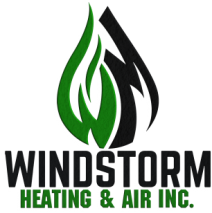Frequently Asked Questions
Do I Need Regular Maintenance?
The most important factor in keeping your air conditioner and furnace working is regular maintenance and HVAC system inspection. For your air conditioner, schedule professional maintenance in the spring to verify it’s ready for heavy usage during the summer. Many people schedule a second maintenance check in the fall to determine how summer affected their air conditioners.
Does Indoor Humidity Matter?
High humidity can damage your health and property, but a fully functioning HVAC system should reduce the humidity to appropriate levels. Low humidity is anything below 30% and is most common during winter or in arid climates. Unfortunately, your HVAC system doesn’t naturally raise the level of moisture in the air. If you’re experiencing the effects of dry air, consider installing a whole-home humidifier.
Can Adjusting My Thermostat Save Money?
A minor thermostat adjustment can help your HVAC system run more efficiently and save you money long-term. What’s the ideal temperature? Experts suggest setting it six degrees higher (or lower) than your ideal temperature.
How Often Should I Replace My Air Filter?
Aside from annual maintenance, air filter replacement for both your furnace and air conditioner is the best way to keep your HVAC system functioning. Change or clean your air filter every 30 days. Some filters can last up to 90 days, depending on the brand and type.
What Size Filter Do I Need?
Use the following process to determine what size filter you need: Locate the frame that houses the air filter. Remove the current filter to check for dirt accumulation. Look at the frame of the air filter for its size. Look for a three-number dimension, such as 16 x 18 x 2.
Should I Clean My Air Ducts?
One of the most common HVAC questions concerns air duct cleaning and whether homeowners should do it themselves. Your air ducts can accumulate mold, dust, allergens, and other pollutants that can damage your health. As such, you should schedule professional cleaning every three years. Don’t try cleaning the system yourself, as you could damage your air ducts, requiring expensive repairs or replacement.
Why Is My Air Conditioner Freezing?
Whether it’s summer or winter, your air conditioner shouldn’t have ice building up. When the ice blocks your air conditioner, it indicates one of two problems: 1. When your evaporator or condenser coils build up dirt or become clogged with leaves, they can freeze over and eventually break your air conditioner beyond repair. Cleaning and clearing the coils usually resolves the issue. 2. Leaking refrigerant can cause low pressure within your air conditioner and freeze the entire device.
How Does an Air Conditioner Work?
Though complicated pieces of equipment, at the basic level, air conditioners work through a combination of cooling the air and transporting the warm air outside. With the warm air expelled outside your home, the air conditioner replaces it with air of your desired temperature. Refrigerant, the evaporator and condenser coils, and the blower fan are some of the most important air conditioner components.
What Size Do I Need?
The best HVAC system size depends on multiple factors, but it shouldn’t be too large or too small. Your HVAC specialist can help determine the best size for your home by using the following factors: Size of your home, Insulation, Layout and location, Number of people.
How Can I Make My System Last Longer?
To make your HVAC system last longer, schedule regular maintenance and repair issues quickly. The various devices within your system should last for the following number of years: Air conditioner: 10 to 15 years, Furnace: 15 to 20 years, Heat pumps: 10 to15 years, Traditional water heaters: 10 years, Tankless water heaters: 20 years.
What Are the Signs of HVAC Problems?
You can tell your HVAC system needs repairs or replacement when you observe one or more of the following signs: Bad smells, Poor air quality, Weird noises, Power issues.
How Can I Lower My Energy Bills?
To help lower your energy bills, use the following best practices in addition to the ones discussed above: Upgrade your furnace, air conditioner, and water heater to more energy-efficient models, Install a programmable thermostat, Use ceiling fans to cool your home or open windows to create a breeze, Don’t run your HVAC system when you’re not home, Ask a technician to inspect your insulation and address any weak points.

